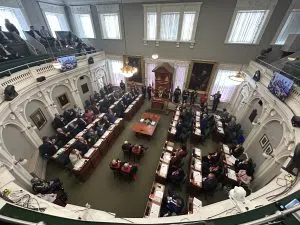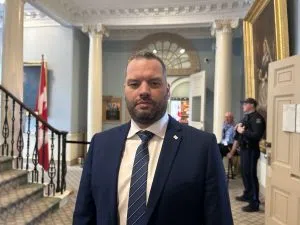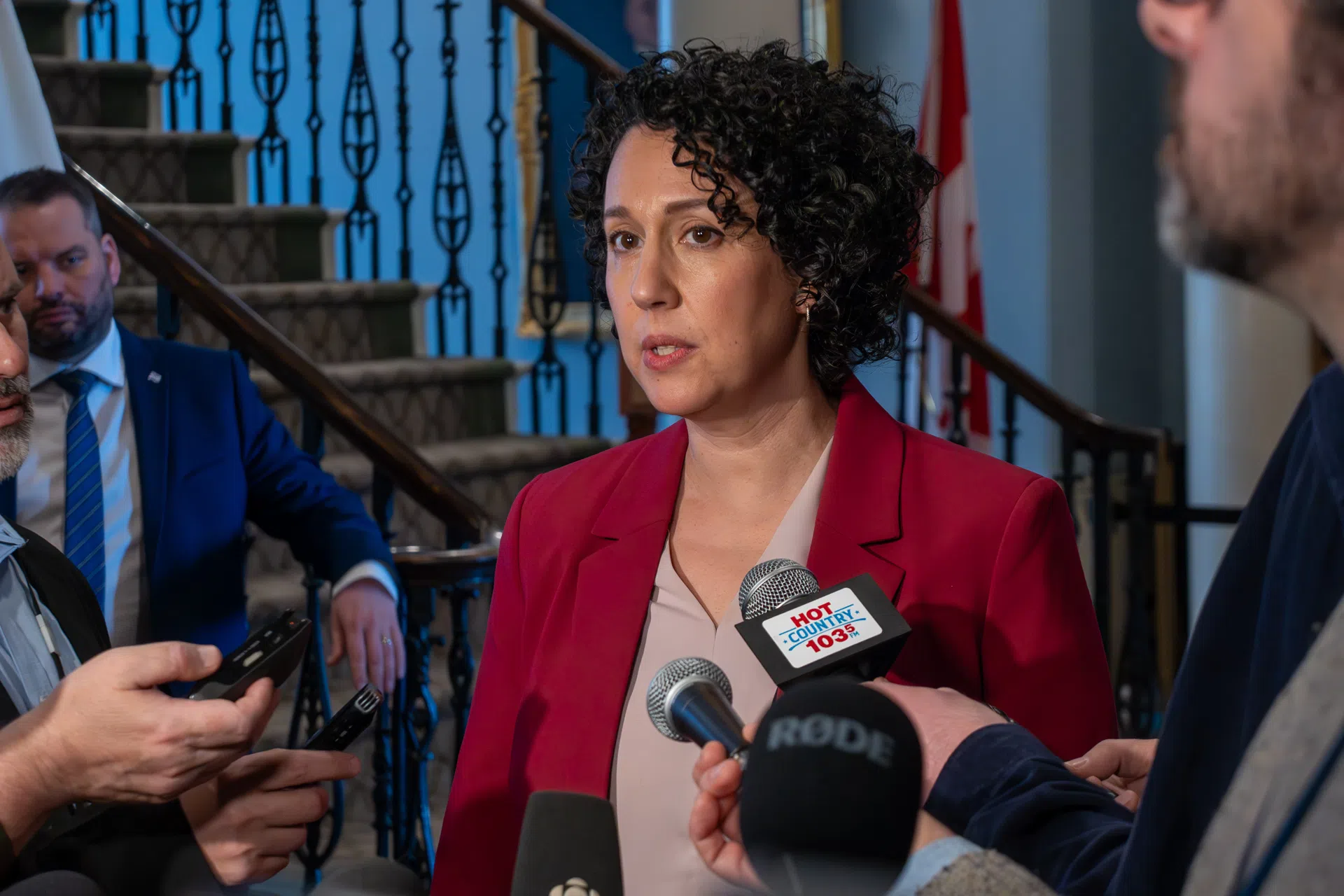Donald Trump’s attack on our country is front and centre as MLA’s return to the legislature.
The first day of the spring sitting also saw a throne speech from Lieutenant Governor Mike Savage that called for unity on resource harvesting but denounced environmental activists, and the province also clamped down on how reporters talk to cabinet members.
Savage started the day with a throne speech that reiterated many of the province’s goals heading into the spring session.
That includes Premier Tim Houston’s desire to lift certain bans on natural resource extraction in the province to make Nova Scotia more independent and rely less on the United States for trade.
“We must do the work to attract businesses to our province because the government can only do so much without economic growth,” Savage read.
Most recently, Trump said he would put 25 per cent tariffs on Canadian steel and aluminum being sold to the U.S., which would start March 12.

Members of the Nova Scotia Legislature are pictured on Feb. 14, 2025. (Jacob Moore/Acadia Broadcasting)
Houston has several natural resources in his sites. The speech references critical minerals like antimony, copper, cobalt, graphite, lithium and more.
As demand grows for electric vehicles, so will the demand for lithium, which is used in rechargeable batteries for things like EVs and laptops, Savage said.
He added that the province can’t fight climate change without harvesting these minerals, but went on to criticize environmental groups who may disagree about harvesting.
Speech denounces environmental groups, activists
The conservatives recently bought a front page advertisement in the Chronicle Herald, where Houston said “vocal special interests” have lead to bans on resource extraction across the province.
But that same phrase popped up in the throne speech several times on Friday.
Neither the advertisement nor the speech said who those “special interest” groups are. But the speech implies that people who are opposed to harvesting critical minerals would be environmentalists.
The speech went so far as to say some of these groups had “veto” power.
“We allowed sectors of our economy to become captured by special interests… Giving groups vetoes that impoverish our fellow Nova Scotians will no longer be tolerated,” the speech read.
Another section of the speech said developing resources would be “met with resistance,” but that the government and any supporters must “push back against these voices.”
Liberals never encountered groups with “veto” power, says Mombourquette
Derek Mombourquette, leader of the Nova Scotia Liberals, spent time in the legislature as both Minister of Energy and Mines and Minister of Lands and Forestry.
When the Liberals had a majority of the seats, he said no one had power over their decisions.
“We collaborated with everyone. Ultimately, we would make decisions around resource development, whether it was on land or on the offshore so there was no veto,” said Mombourquette.

Liberal leader Derek Mombourquette stands outside of the Nova Scotia legislative chamber on Feb. 14, 2025. (Jacob Moore/Acadia Broadcasting)
Claudia Chender, leader of the NDP and the official opposition, said the Premier’s hoping to lift bans first and consult later.
She said the party really likes to have an enemy. It was Justin Trudeau, before he announced he would step down, but now that enemy is anyone who disagrees with them, she said.
“It is a time for tough conversations, and we may not agree, but just as the premier likes to call certain policies lazy, we think it’s lazy politics to cast anyone who disagrees with you as an enemy, rather than actually running a responsible government and engaging in debate,” she said.
Province clamps down on reporter access
The PCs are also clamping down on how reporters talk to the Premier and ministers.
For years, new outlets could speak to cabinet members outside of the legislative chamber. But after the throne speech, the Premier would only talk to reporters at the media room across the street.
Chender says they’re trying to control their message by not engaging in debate or dialog.
“This is the people’s house. This is where we are always asked to debate each other and then to take our message out to Nova Scotians, and we’ll continue to do that.”
The government also recently announced they would dismantle the communications department.
Despite the concerns of both the NDP and the Liberals, the conservatives hold a vast majority of the seats.
Nova Scotians will have to see how they use that power when the legislature sits again Tuesday.










